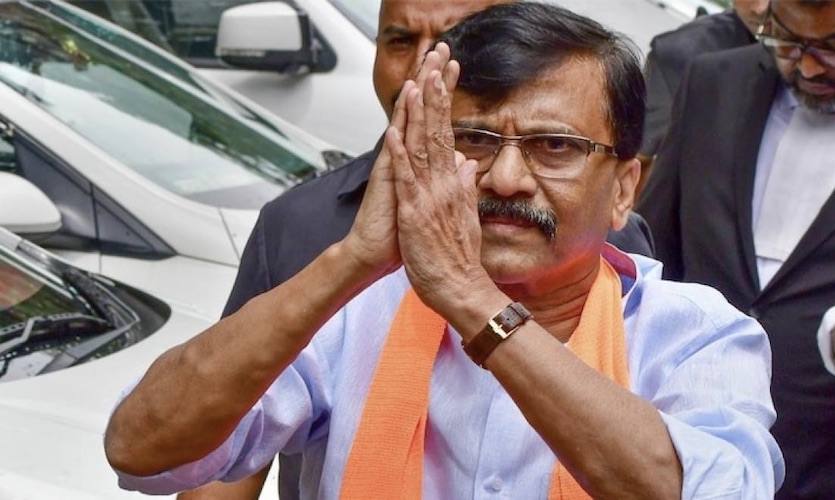All appeals challenging the Agnipath Scheme and seeking a resumption of the previous recruitment scheme for the Indian defence services were dismissed by the Delhi High Court on Monday.
During the judgement, a division bench headed by the Chief Justice of Delhi stated that the scheme is in national interest, and would improve the armed forces’ capabilities.
In a decision handed down on Monday, Delhi HC Chief Justice Satish Chandra Sharma and Justice Subramonium Prasad upheld the scheme launched by the central government.
Following arguments from different petitioners and the central government, the bench held the judgement in reserve on December 15, 2022. During the hearing, Additional Solicitor General (ASG) Aishwarya Bhati appeared for the central government and submitted that more than 10 lakh aspirants have received age relaxations. In terms of recruitment of defence personnel, the Agnipath Scheme marked a paradigm shift. It has been informed to the Delhi High Court by the central government that no prejudice has been caused to any of the candidates who had previously participated in recruitment.
The central government further briefed the committee that while enlistment in the military is a crucial sovereign duty associated with safeguarding national security, it differs greatly from employment in public agencies. Therefore, in order to exercise its sovereign power, and effectively and efficiently protect the security and integrity of the nation, the central government is properly empowered to change the policy governing the mode and methods/service conditions of individuals who are to be employed in the armed forces, according to the affidavit.
It was also noted that the central government’s decision to recruit under the new Agnipath Scheme is a strategic choice made for national security concerns. In support of one of the petitions contesting the plan, attorney Prashant Bhushan contended that the government’s decision was arbitrary and unjust, and that the choice was made for no discernible reason.
He added that the individuals whose names were on the select list were forced to wait another 2.5 years. There is a distinction between the Navy and other defence forces, responded ASG Bhati to the argument. The procedure must be delayed since it will affect the Navy’s operational capabilities and preparation for war, requiring modification of the recruitment plan accordingly.
“Selection does not give a right to an appointment. The process got delayed because of COVID,” the ASG argued. The Chief Justice enquired, “People who had cleared the examination were waiting. Why did you not complete the process?” The decision was allegedly made at the highest level in June 2021, according to ASG Bhati. The Agnipath plan represents an obvious paradigm change. The government had made it clear that the Agniveer is a different cadre and ranks behind the sepoy.
Ankur Chibber, a lawyer who represented some of the petitioners, asserted throughout the hearing that there could not be a pay gap. Sepoy is the lowest rank in the military. A sepoy would make more money than an Agniveer. He mentioned that if an ‘Agniveer’ gets chosen after serving for four years, he would have to reapply. His previous four years of experience wouldn’t be taken into account, and his seniority and other advantages will be impacted. Harsh Jay Singh’s attorney, Kumud Lata, asserted that the term of duty is four years, and that an Agniveer wouldn’t be qualified for a gratuity. She also brought up the fact that the Agniveer are not eligible for a pension.
Justice Prasad remarked, “It is a new scheme which gives an option to a young man to get training. After that, he can go and do any job. Moreover, it is not compulsory.” A third counsel, who has 21 years of army service, claimed that the training session was brief. He said that at least a year is needed for physical and weaponry training. He also argued that a person’s sense of belonging grows with time. Throughout the course of their service in the military, soldiers earn and offer respect. He said that the administration did not consider input from the ground-level unit.
Previously, the bench had stated that it would not terminate the Agnipath Scheme. “If petitioners get success in the case, they will get it. We will not pass any stay or interim order and will hear the case finally,” it added. The Supreme Court sent numerous Agnipath Scheme-related petitions to the Delhi High Court on July 19, 2022. It also made it clear that with regard to other comparable petitions contesting the Agnipath Scheme currently pending in different High Courts, they should either give the petitioners the option to have their petitions transferred to or to keep them pending with the freedom to intervene in the Delhi High Court. The apex court has also asked that the issue be taken up and resolved quickly. According to the Supreme Court, the high courts of Delhi, Kerala, Punjab & Haryana, Patna, and Uttarakhand are now hearing cases involving these programmes.
After hearing from advocates Kumud Lata Das and ML Sharma for the petitioners and Solicitor General Tushar Mehta for the respondents, the Supreme Court issued its directives. According to a petition opposing the programme, the announcement of the programme had sparked widespread protests in Bihar, Uttar Pradesh, Telangana, Haryana, Uttarakhand, West Bengal, and other states, because it only lasted four years in the Indian Army and the future prospects of the trained “Agniveers” were unclear. In this case, a PIL demanded that the Centre revoke its notification of the Agnipath programme, claiming that it is “illegal and unconstitutional”.
On June 14, 2022, the Union Cabinet authorised a recruiting programme named Agnipath for Indian youth to join the three services of the Indian Armed Forces. The youth chosen under this programme would be referred to as Agniveers. Agnipath enables determined young people who are patriotic to serve in the military for four years. The Agnipath Scheme was created to enable a younger demographic inside the armed forces.
Read more: Sanjay Raut Booked For Making Offensive Comments On Eknath Shinde









